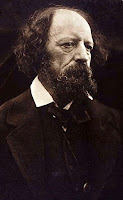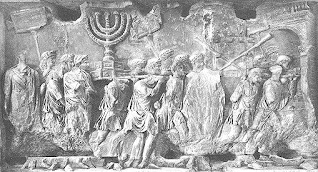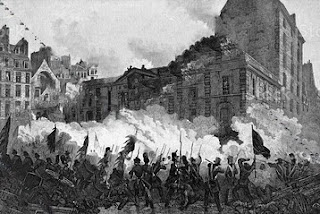-: Tennyson's Ulysses as a dramatic monologue :-
 |
| Lord A. Tennyson |
The dramatic monologue is a peculiar combination of dramatic properties and poetic faculties with the dramatic quality predominating. The Victorian Era (1830-1900), which is known for its objective outlook as opposed to the subjectivity of the Romantic Age (1798-1830), manifests itself in dramatic writings attempted by Browning and others; but can not come out with success. To dissipate the sense of failure which these writers experience in their drama, they wanted to introduce a new element in English poetry— and the result is a dramatic monologue of which Browning is the champion. Consequently, when Tennyson takes up the poetic form of a dramatic monologue, he is aware of the development in contemporary theatre and often uses subtle nuances of it in his writing. His well-made poem Ulysses (through writing completed in 20th October 1833, published in 1842) is a very good example of dramatic monologue.
The dramatic monologue is a lyrical-dramatic-narrative hybrid. It absorbs an emotional expressiveness from lyrics, a speaker who is not the poet from drama, and elements of mimetic detail and retrospective structuring from the narrative. In a drama, we are familiar with soliloquy and the poetic rendering of this soliloquy is the monologue where the speaker is caught at a crucial moment of life in a certain background. The difference between a monologue a soliloquy is that while the former has a passive listener which is felt from little hints, the latter has nothing as such.
Ulysses is a dramatic monologue: as such, it reads like a speech from Act III of Hamlet or Book II of Paradise Lost. The monologue takes the form of a retrospection; in the poem, Ulysses, the great hero from the Trojan wars, is an old man who, having returned to Ithaca, is looking back upon his Odyssey:
|🙶Much have I seen and known...
... ... ...
For on the ringing plain of windy Troy
I am part of all that I have met;🙷
It is Christopher Rick who explains that Tennyson might have read H. F. Cary's translation of Inferno and points out that the speaker of the monologue finds himself in a situation more recognisable to Dante's hero. In Inferno, Ulysses— who once "explore[d] the world" (H. F. Cray's translation of Dante) and has been living Ithaca for several years and expresses his desire to travel the world. From this point, Tennyson begins his poem. The first sentence— "It little profits that an idle King"— suggests that Ulysses no longer find it worth living a retirement life. Therefore, he insists on his fellow mariners again for a journey to explore "new things" and accumulate knowledge.
|🙶All are architects of Fate,
Working in these walls of Time,🙷
—Henry Wordsworth, The Builders
What is complex about Ulysses' thought lies in his sustained attempt to arrive at a sense of personal identity in his old age: "who am I now?". Decoded through Ulysses, as such Tennyson is asking himself who he is without Hallam and how he can find the enthusiasm to rise out of his despondency and live the remaining years of his life.
|--------------------------------------------------------------------------------------------------------|
Check out our other Content on Poems available in this blog
|-----------------------------------------------------------------------------------------------------------------------|
Into Ulysses' myth ("I cannot rest from travel") Tennyson crypts his own ceaseless effort to recover his equanimity in the aftermath of Hallam's death. Ulysses' fear is that he is merely famous for having been famous: "I am become a name". He is sensitive to the stigma that he is a has-been because there is nothing in his present that illuminate the past. Therefore, he resolves to utilise the most of "every hour" that he has left before the "eternal silence". Such a heroic resolution is entirely in keeping with Ulysses' reputation: in other words, he remains a hero in his attitude towards old age. It would be "vile" if "this gray spirit yearning in desire" does not try its utmost "to follow knowledge like a sinking star": that is, to "pursue virtue and knowledge high" (as Dante put it).
Ulysses turns to the consolation of his son in the hope that Telemachus will succeed where he has failed: that is, in civilizing such a "savage race" or "rugged people". He is also impeccable in common duties and worshipping " household gods". Telemachus is a foil of Ulysses. However, Tennyson points out the difference between mediocrity (Telemachus) and extra-ordinary genius (Ulysses).
 |
| Ulysses preaches to his fellow Mariners |
In this monologue, Ulysses not only reveals his character but also his philosophy of life which is more general than an individual. He represents the typical Victorian mind: moral courage is the only true adequate response to human experience and will not give in to death. Once Tennyson said in one of his letters that there is more "about myself" in Ulysses than In Memoriam. Finally, we can say that Tennyson's Ulysses is a masterpiece of dramatic monologue and passes the thorough test of high artistry.





No comments
Thanks for your valuable opinion. Your comment inspires us a lot to do better time and again.